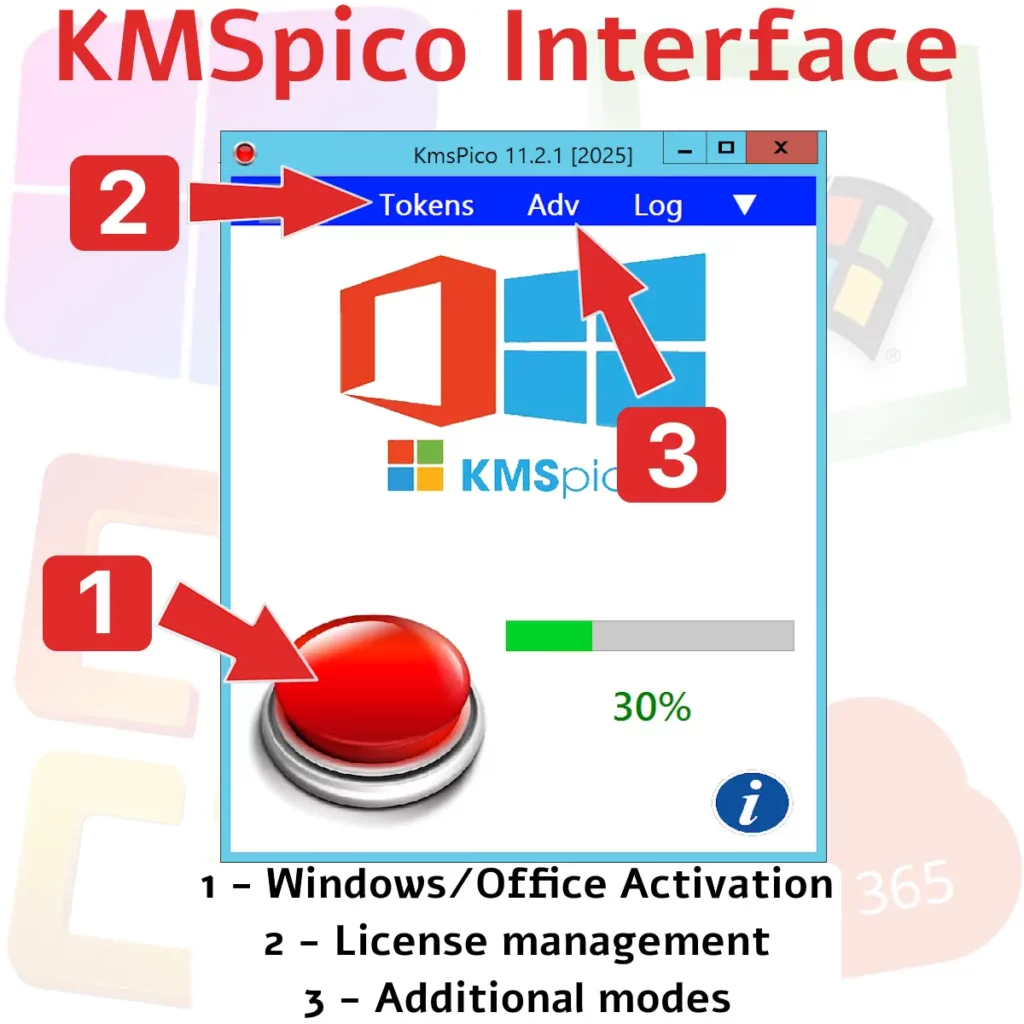
In the ever-evolving landscape of cybersecurity, office software vulnerabilities present a significant area of concern. One software that frequently surfaces in discussions is kmspico office 2019. Understanding these vulnerabilities requires an analysis of how activators like kmspico are used to bypass legitimate software activation methods.
The Mechanics of kmspico Office 2019
Kmspico office 2019 is widely known as a tool to activate Microsoft products without a genuine product key. It leverages the KMS activation method, which is typically used by Microsoft for volume licensing. By emulating a KMS server, it tricks the software into activating itself as if it were connected to a legitimate corporate network.
Origins and Purpose
The origins of kmspico shed light on its intended purpose: to provide access to paid software features without the need for an official license key. Its portable version, known as kmspico portable, allows users to activate software across different machines with ease. The rationale behind its existence is often financial—avoiding recurring subscription fees for office suites or operating systems.
This tool emerged in response to the high costs associated with purchasing multiple licenses for business environments where numerous machines require activation. Users who might not have the budget for extensive software purchases find kmspico an attractive alternative, even though it comes with significant risks.
Risks Associated with Kmspico Office 2019
While kmspico office 2019 offers a seemingly cost-effective solution, it opens doors to numerous vulnerabilities. Users may inadvertently introduce malware into their systems, as many unofficial downloads are bundled with malicious code. Activating software via such means also violates licensing agreements, potentially leading to legal repercussions.
Malware and Data Breaches
- Unauthorized activation tools can come packaged with trojans or ransomware.
- Data breaches may occur if sensitive information is exposed during activation.
- Compromised systems can become part of botnets used in larger cyberattacks.
The dangers extend beyond individual machines; entire networks can be compromised through these unauthorized activations. Malware hidden within these activators can spread rapidly, affecting data integrity and security protocols across various platforms.
KMS Activation Method: A Vulnerability Vector
The kms activation method creates vulnerabilities through its misuse. Software like kmspico manipulates this protocol, transforming it into a vector for cybersecurity threats. Recognizing this pattern helps organizations strengthen their defenses against unauthorized activations and potential malware infiltrations.
Securing Against KMS Exploits
To mitigate these risks, cybersecurity teams must monitor network traffic for anomalies indicative of unauthorized KMS activation attempts. Using intrusion detection systems (IDS) can help identify suspicious activity related to kmspico activator use. Managing network permissions diligently ensures only authorized devices connect to legitimate KMS servers.
Concrete Measures in Practice
A practical step includes deploying monitoring tools like Wireshark to capture packets that suggest unauthorized kms pico traffic. Additionally, maintaining software updates and patches fortifies defenses against exploits targeting known vulnerabilities within the office suite applications.
Moreover, educating IT staff about common signs of unauthorized activations improves vigilance. Regular training sessions help keep teams informed about the latest threats and strategies in combating unauthorized software use.
Comparison
| Aspect | KMSPico | Office 2019 (Licensed) |
|---|---|---|
| Legality | Illegal activation method | Fully legal with purchase |
| Security Risk | High risk of malware | Low risk, vetted software |
| Updates | No official updates | Regular updates from Microsoft |
| User Support | No official support available | Access to Microsoft support |
Virtual Lab Constraints
When analyzing potential threats posed by kmspico office 2019 within controlled environments, labs may impose constraints such as VM configurations limited to 2 vCPU and 4 GB RAM. These limitations ensure that simulations remain realistic without excessive resource allocation that could skew results or analyses.
This approach allows researchers to simulate real-world scenarios effectively while controlling variables that might otherwise lead to inaccurate conclusions about the efficacy of countermeasures against kmspico activators.
Evolving Countermeasures for Office Suite Security
The persistent challenge remains: developing robust countermeasures while accommodating user needs for seamless access and functionality. Organizations must balance security protocols with user experience enhancements to discourage reliance on activators like kmspico office 2019 or other unauthorized methods.
User Education and Awareness
Educating users about the risks associated with tools like activator windows 10 is crucial in reducing dependency on non-legitimate solutions. Awareness campaigns can highlight not only security risks but also ethical considerations surrounding intellectual property rights.
- Create training programs focusing on secure software acquisition and usage practices.
- Implement regular audits of installed software to ensure compliance with licensing terms.
- Promote awareness about the legal implications of using unauthorized software activators.
Integration of Security Tools
The integration of advanced security tools, such as endpoint protection platforms (EPP), empowers organizations to detect and neutralize threats at various stages of attack chains associated with unauthorized activations like those seen in kmspico office 2019 scenarios.
These platforms provide real-time monitoring capabilities that enable swift responses to potential breaches initiated through illicit activation tools. By incorporating machine learning algorithms, EPPs offer predictive insights into emerging threats before they materialize fully within organizational networks.
The Role of System Administrators in Mitigation
System administrators play a pivotal role in mitigating risks linked to unauthenticated activators like kmspico office 2019. They are tasked with enforcing strong policy frameworks that prevent unauthorized installations and ensure that all deployed systems adhere to organizational security standards.
Enforced Policy Frameworks
A comprehensive policy framework encompasses regular system audits, permission restrictions on executable downloads, and user training initiatives aimed at minimizing exposure to unverified sources of software activation. Tools such as Group Policy Management Console (GPMC) assist administrators in maintaining stringent security postures across corporate networks.
A Holistic Approach
- Combine technical defenses with strategic policy enforcement for maximum effectiveness.
- Adopt proactive threat hunting techniques focused on early detection of anomalies related to kms office activities.
- Foster collaboration between IT departments and end-users to create an informed culture resistant to unauthorized practices.
The consistent development and implementation of comprehensive security measures highlight the ongoing battle against software vulnerabilities exacerbated by tools like kmspico office 2019. By understanding these patterns, organizations can better protect themselves from exploitation while fostering an environment where licensed software use thrives safely and ethically.
This holistic approach towards managing vulnerabilities not only safeguards organizational assets but also cultivates a culture where compliance becomes second nature among users. The battle against unauthorized activations continues unabated, requiring constant vigilance from IT professionals who must stay one step ahead in identifying new threats posed by evolving versions of tools similar to kmspico office 2019. As technology advances, so too must our strategies evolve—ensuring robust defense mechanisms are always in place against potential exploits stemming from misused activation protocols or counterfeit license keys found online or through other channels outside official distribution networks.



